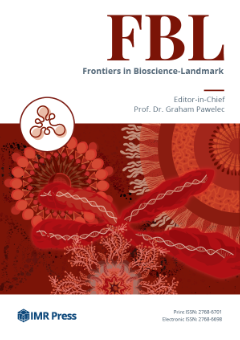Background: Impaired glucose regulation (IGR)
represents the prediabetic state and is associated with gut microbiota (GM)
dysbiosis and chronic inflammation. Tangning Ziyabitusi Tablet (TZT) is a Chinese
Uyghur herbal medicine with preventative and therapeutic effects on diabetes, but
its hypoglycemic mechanisms are unclear. Methods: Thirty-six male Wistar
rats were divided into the normal diet (ND) and IGR groups. The IGR group was
given a high-fat diet (HFD). After the IGR model establishment, the ND group was
divided into ND and ND+TZT groups, and the IGR group into IGR and IGR+TZT groups.
After 8 weeks of TZT administration, 16S rRNA sequencing and untargeted
metabolomics were performed on fecal samples. Mesenteric lymph nodes were also
collected, and T lymphocytes separated after rats were sacrificed. Flow cytometry
was used to characterize different CD4 T cell subsets in mesenteric lymph
nodes. Finally, we analyzed the correlation between GM and characteristic fecal
metabolites. Results: Impaired glucose tolerance and insulin
resistance were improved in the IGR+TZT group when compared with the IGR group.
Bacterial 16S rRNA sequencing results showed that Sobs and Chao1 indices in the
IGR group were significantly decreased, but were increased in the IGR+TZT group.
The relative abundance of Bacteroidetes was decreased while the relative
abundance of Firmicutes was increased in the IGR group.
Adlercreutzia abundance was decreased after TZT administration,
while the abundance of Christensenellaceae_R-7_group,
norank_f_norank_o_Clostridia_UCG-014, UCG-005, and
Eubacterium_nodatum_group was increased in the IGR+TZT group. Lymph
node CD4 T cell proportions in the IGR group were significantly increased,
while they were significantly decreased in the IGR+TZT group. Correlation
analysis showed that tumor necrosis factor-, interleukin-6, T
helper cells (Th1, Th2, Treg), and insulin had a greater impact on GM community
structure. Conclusions: TZT improved glucose tolerance and
ameliorated GM dysbiosis in IGR rats. Additionally, TZT significantly modulated
CD4 T cell subset proportions in rat mesenteric lymph nodes and fecal
metabolism. Moreover, correlation analysis showed that key microbiota was closely
related to IGR indices. Thus, TZT modulated GM composition and immune functions
of the intestinal mucosa. We provide useful information for the investigation of
active mechanisms and the clinical application of TZT.


